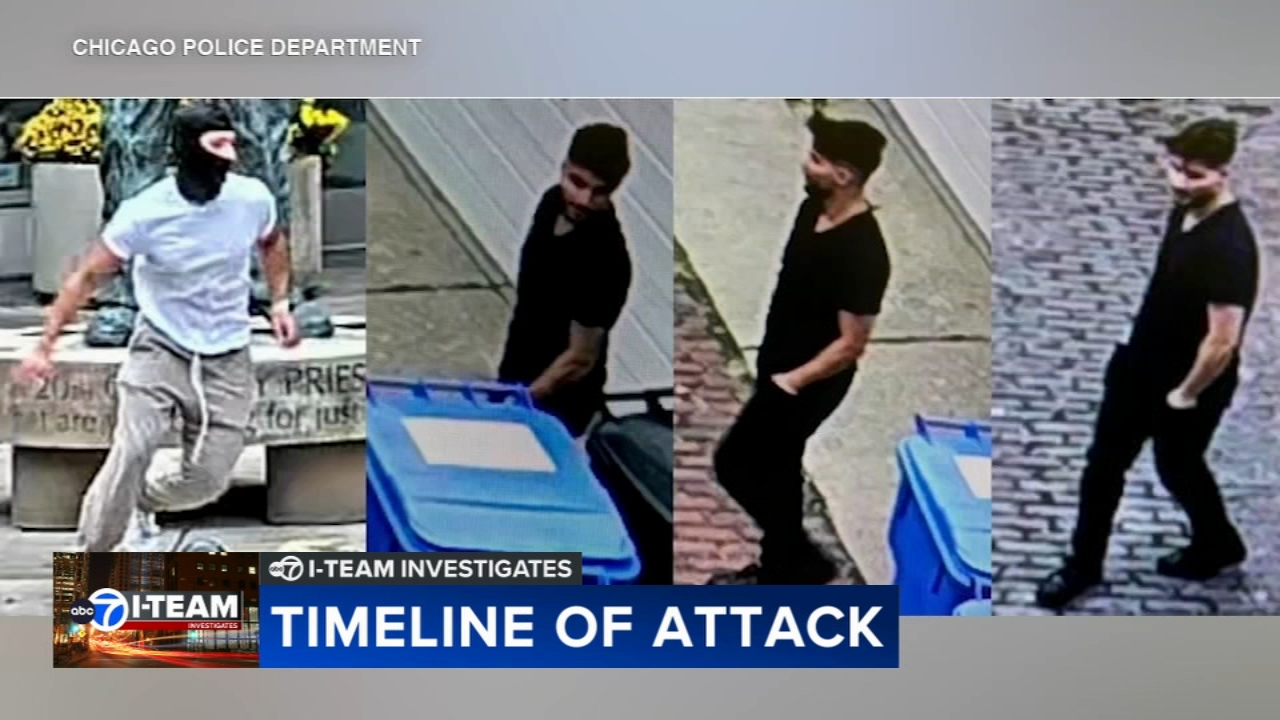Uber, Lyft rides skyrocket in price as drivers remain scarce
CHICAGO (WLS) -- People who rely on Uber and Lyft to get around said they're struggling to afford what seems to be skyrocketing rates.
Rideshare revolutionized transportation with lower prices and better access in all of Chicago's neighborhoods. Now the pandemic and less competition may leave consumers with fewer options.
"We don't have that type of money. Every day all day? No. Just think if I'm catching it from to work and then coming back from work, that's like $50 going there and back," said Donna Powell.
Powell counts on Uber and Lyft to take her about 1.8 miles, or 7 minutes, from her Austin neighborhood apartment to her job in food service at a veterans' hall near the Illinois Medical District. That ride used to cost her $12, but is now $20 or $30 on weekdays and $30 to $40 on weekends.
"It's like triple what I used to pay, you know, literally, you sitting there on your couch you were in tears because you like I gotta get to work," she said.
Powell said she started seeing that consistent increase within the last few months and shared what she said are screenshots of some surges. She said public transit doesn't work for her schedule and she's avoiding it during the pandemic.
"My daughter drives me; when she can't I'm stuck," said Powell.
Powell is not alone. The cost of rideshares are on the rise across Chicago and the suburbs. The I-Team took screenshots of prices over the last two months and found that relatively quick rides between neighborhoods like River North, Fulton Market, the Gold Coast and Lincoln Park costing $15, $20 even $30. Those rides used to range from $8 to $13 several months ago.
The reason? Demand is higher but there are fewer drivers.
"The recovery of riders is better than expected, on the other hand, the recovery of drivers is still about 50%," said Hani Mahmassani, director of Northwestern University's transportation center. "And that would then explain why the prices would go up the supply and demand. Demand is exceeding supply and so you can price a little higher."
Mahmassani believes demand is also partially fueled by a reluctance to take mass transit, like buses and trains.
"In many people's minds transit is not quite yet a viable option," he said.
The Independent Drivers Guild of Chicago also said COVID-19 risks and carjackings have kept drivers off the road.
"I'm not seeing any more money in my pocket, it's the same as a year or two ago," said Lyft driver Ronnie Nelson. He said he's not cashing in on the surge. "I picked up a rider for a 3-minute drive, she paid $20 I made $6."
The I-Team asked some drivers what they make on rides after our trips. Drivers said many times they may only pocket about half or less of the total trip cost.
Knowles took an Uber trip for $14. The Uber driver showed that he only made $4.58 off the ride.
Uber claims that median earnings for Chicago drivers, before tips, is approximately $36 an hour. Lyft claims that overall, drivers have seen an increase in earnings since before the pandemic and that they make an average of $31 an hour.
Both companies said they're working to bring more drivers on the road to meet the increased demands from riders.
"There is less drivers out here than people needing the ride and giving us all these high incentives to keep us out here," said Terry Ingram, who drives for Uber. "And I do make good money amount of money, but Uber, I believe, is taking more than they need to."
Ingram made $41 on Knowles' $73 ride from the south suburbs to downtown.
Mahmassani said the rideshare demand is also higher because of the disappearance of taxi cabs.
Knowles waited for 10 minutes downtown for cabs. Instead, he saw on his app that there was a Lyft available for $22.80 from the Loop to River North and both Uber and Uber X were $25.
Cab driver Robert Ago said many drivers started avoiding downtown even before the pandemic because consumers were choosing rideshares.
"Downtown cabs are not needed anymore," he said.
Ago said that he and his fellow drivers now mostly go to airports.
Ago has pictures of a fleet of taxis in a friend's backyard, parked since March of 2020. The medallions are worth a small fraction of what most paid.
"I spent $60,000 on the medallion a year ago, now it's, like, worth zero," he said.
The city says there are 1,480 licensed cabs still on the road. In 2014, there were 6,600, as cited in an I-Team report.
If you can find one, cabs may now be a cheaper option. Prices are regulated by the city. You can also call for one on the Curb and Arro apps.
Powell also said cabs are rarely in her neighborhood, so she's forced to pay more for rideshare.
"I look again, it's the same price. it never goes down. It's ridiculous!" Powell said.
Transportation experts say the prices should level out as more drivers return, but there are some things you can do now.
Try to schedule your rideshare rides in advance through the apps which may cut down on the cost. If you're a frequent rideshare user, check out options for ride plans which could cost you a monthly fee but will reduce your price per ride.











